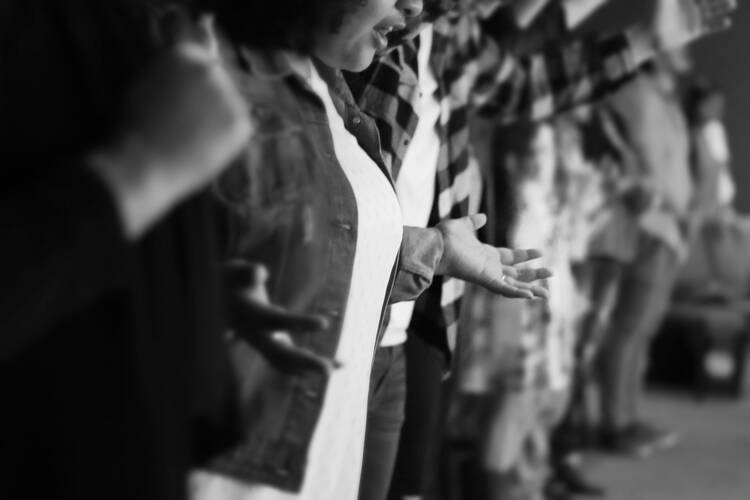A Reflection for Monday of the Twelfth Week in Ordinary Time
Find today’s readings here.
“How can you say to your brother,
'Let me remove that splinter from your eye,'
while the wooden beam is in your eye?” (Matthew 7:4)
In the final days of Pope Francis’ life, and especially since his passing, I’ve experienced a heightened awareness of the things he said and did that made him special. I have felt a true sense of gratitude for his time leading our church.
It became clear to me that his papacy had been on my mind when I noticed a trend in the way I speak. Over the past few weeks, I have found myself incorporating one of his most famous lines into my daily conversations: “Who am I to judge?”
He famously spoke those words back in 2013 when asked about the place of gay persons in the church. Many considered his statement to be one of the most inclusive and open-minded the Catholic Church has ever seen.
And recently, without making a conscious effort to do so, that phrase has become part of my vernacular. In situations where I might have previously formed an unfair opinion about someone or something, I have found myself instead repeating those five words: “Who am I to judge?”
In today’s Gospel, Jesus gives his disciples a clear task: “Stop judging.”
Sure. Easier said than done. A mentor and friend of mine from Boston College embodies this trait of non-judgment better than almost anyone. He is an expert at receiving people as they are, noticing their goodness and walking alongside them. I recently reflected on just how much I care about making this tendency a guiding principle in my life.
I paid particular attention to the ordering of Jesus’ words in this Gospel. When we are in judgment mode, all we can do is “notice” the splinter in our brother’s eye. “Noticing,” in this instance, is unhelpful. But after removing the wooden beam from our own eyes, we can “see clearly to remove the splinter” for our brother. “Removing” is quite helpful.
When we practice humility and recognize that there may be some matters in our own lives that need work, we can be of service to others. I can’t help but think of how the flight attendants on airplanes instruct us to put on our own oxygen masks before tending to others, in the case of an emergency. It’s hard to help if you can’t breathe. Or, in this case, if you can’t see.
I view the ability to be gentle and welcoming, when it feels far easier to be judgmental or combative, as one of the truest signs of strength. As our editor-in-chief and president Sam Sawyer writes so wonderfully on the topic of polarization, “Disagreement and condemnation among Christians are envisioned more as a failure of love than as a principled defense of the truth.” If disagreement is the failure to love, then judgment is the failure to even make the attempt.
Living life with a complete lack of judgment is immensely difficult. We are human, and we will stumble. But I think Pope Francis and Jesus would agree that we owe it to one another to try.








